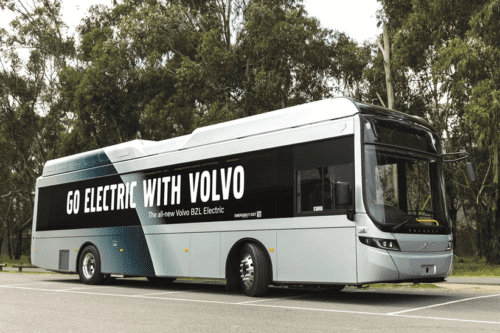
With all eyes on Paris, green transport plans are already being made for the 2032 Olympics in Brisbane, as Jonathan Welch finds out
As the Olympic Games gets underway in Paris, thoughts are already turning not just to the next event, due to be held in Los Angeles, but to the one after that. In 2032, the Australian city of Brisbane has pledged to host a climate-positive Olympic and Paralympic Games, and the ambitious target is already having a transformative effect on the city, not least its public transport networks.
With just eight years to go, Brisbane is the first city in the world contractually obliged to hold a climate-positive Olympic Games. In practice, this means the city needs to remove more carbon from the atmosphere than the Games emit. It’s an ambitious target but also an opportunity for the city to seize the moment and create a more sustainable and liveable environment for its own future. Plans to achieve that goal are already starting to have a big impact on the city’s infrastructure and public transport, with the 2032 deadline and the knowledge that the world will be watching helping to concentrate minds.
The Olympics are to be a springboard to accelerate the Queensland Government’s Climate Action Plan, which aims for net zero emissions by 2050, giving a distinct deadline – and one that cannot be pushed back or renegotiated. If it is to be achieved, the city knows it needs to act drastically, and act now, and make significant investments in deep decarbonisation.
Sustainability expert at the University of Queensland, and founder and CEO of ThinkZero, Dr Cle-Anne Gabriel has extensive experience consulting private companies and public institutions on issues surrounding sustainable development. Since Brisbane won the Olympics, she says she has noticed a distinct shift in people’s attitudes and growing urgency when it comes to climate change: “In 2032, the eyes of the world will be on Brisbane, so there is nowhere to hide if we do not meet our target,” she says. “But in the process, we can see that this is a fantastic opportunity to transform Brisbane itself. We’re asking ourselves questions like what kind of city do we want to live in? How can we make it more sustainable? More socially equitable? In many ways, this process is much more important to our future development than the 2032 target for a climate-positive Games.”
Transport legacy
One area that is already said to be showing signs of rapid change is the city’s public transport, which plays a key role in both sustainable urban development and in keeping the throngs of visitors moving during any major international event. As part of the city’s plans, a new ‘Brisbane Metro’ is being put in place, consisting of a high-frequency rapid transit system using high-capacity electric buses. It is expected to begin operations by the end of this year.
[…]By subscribing you will benefit from:
- Operator & Supplier Profiles
- Face-to-Face Interviews
- Lastest News
- Test Drives and Reviews
- Legal Updates
- Route Focus
- Industry Insider Opinions
- Passenger Perspective
- Vehicle Launches
- and much more!


